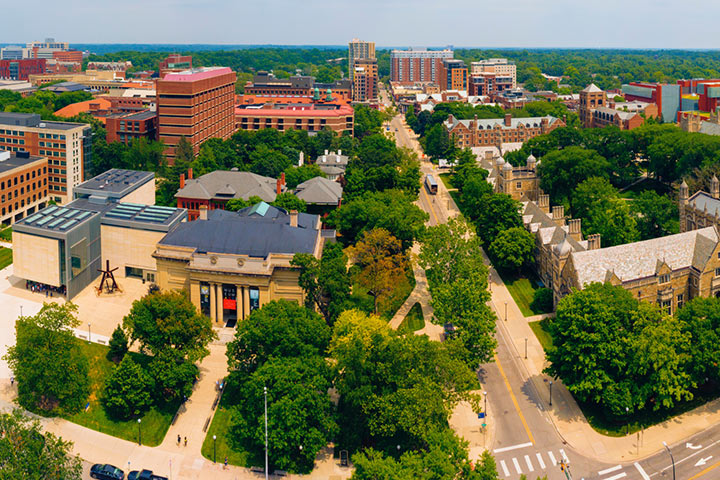Urban water quality management towards a sustainable framework the investigation of finescale urban form effects on stream water quality
Urban water quality management towards a sustainable framework the investigation of finescale urban form effects on stream water quality
Urban water quality management towards a sustainable framework the investigation of finescale urban form effects on stream water quality
Program: Catalyst Grants
Program details » | All Catalyst Grants projects »

Photo credit: Pawel Gaul of Canva.com
Project team
- Runzi Wang — U-M SEAS (PI)
- Yang Chen — U-M Statistics
- Robert Goodspeed —U-M Taubman College of Architecture and Urban Planning
- Branko Kerkez — U-M Civil and Environmental Engineering
- Joshua Newell — U-M SEAS
- External Partner: Huron River Watershed Council
Project Summary
Healthy stream ecosystems provide important services in urban settings, including drinking water, recreation, and natural beauty. Urban stream water quality is determined by a complex set of variables that include water infrastructure design, land development regulation, site design, and ecological contexts. This research team aimed to create a first-of-its-kind multi-disciplinary framework for urban water quality management. Together with the Huron River Watershed Council (HRWC), the team piloted its work in the Huron River watershed.
Researchers created a scenario-planning tool that HRWC and local jurisdictions can use to compare water-quality outcomes under different urban development scenarios from the regional pollutant-loading standards. The team also sought to publish an urban environment database with the current conditions of all Huron River sub-watersheds, which planners and researchers everywhere can access, adapt, and use. Parts of the project could become a state-of-the-art case study to introduce students to the concepts, methods, and solutions prevalent in urban sustainability.
What sets this study apart from other urban water quality research is its emphasis on ‘urban form,’ or the patterns, layouts, and structures that compose built-up areas. Urban form connects factors that drive water-quality degradation with management decisions like zoning, master planning, and water policy—but its influence on water quality has rarely been quantified. The results of this study will provide essential information for water resource managers and policymakers to devise actionable and cost-effective solutions for water quality management in the pre-development stage.
This project received a $10,000 Catalyst Grant in 2021.